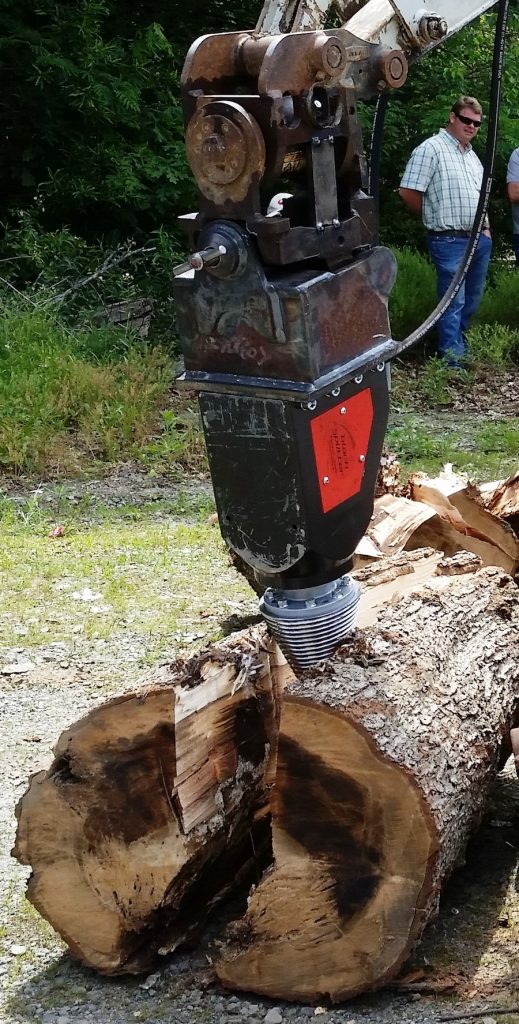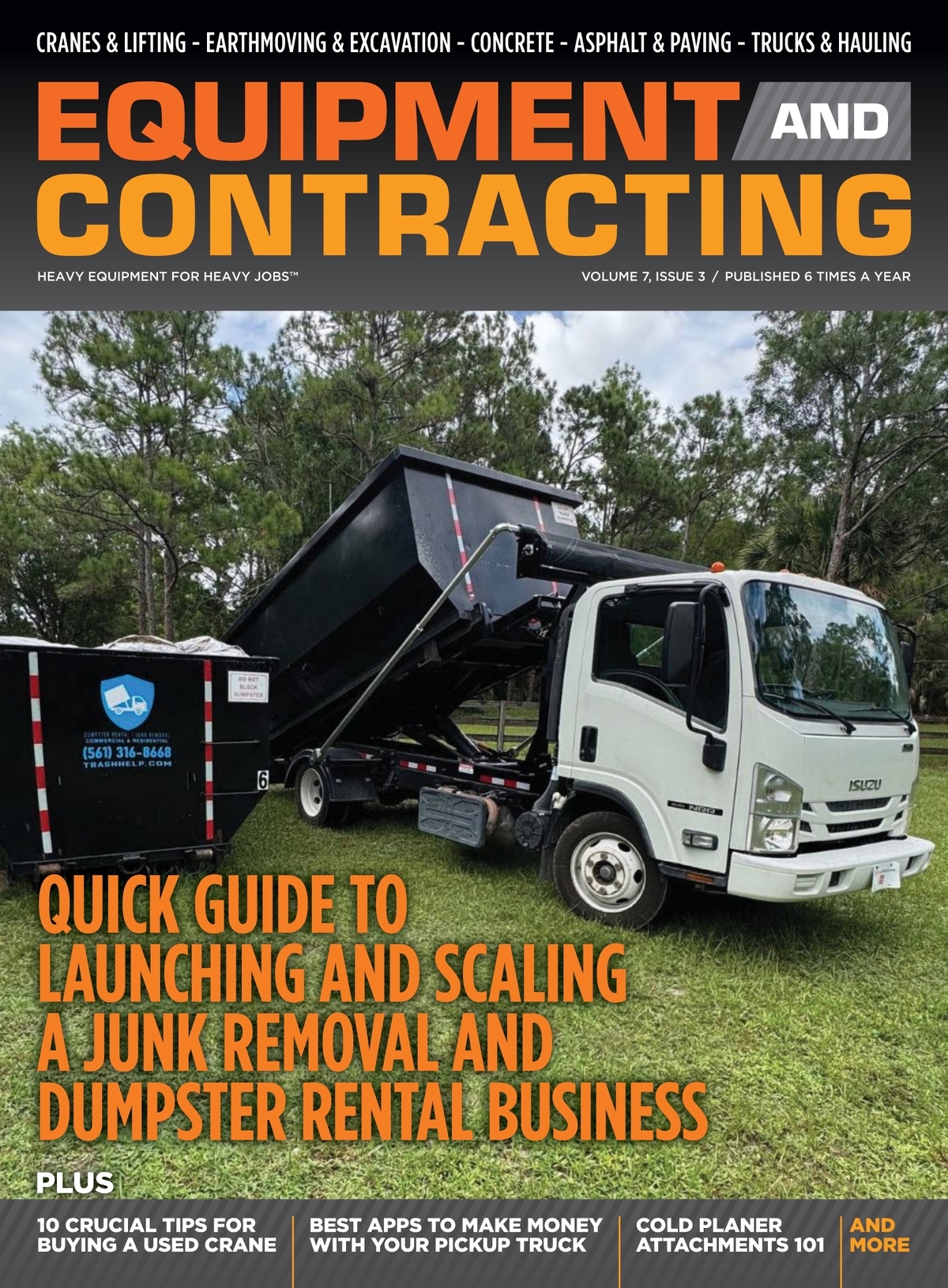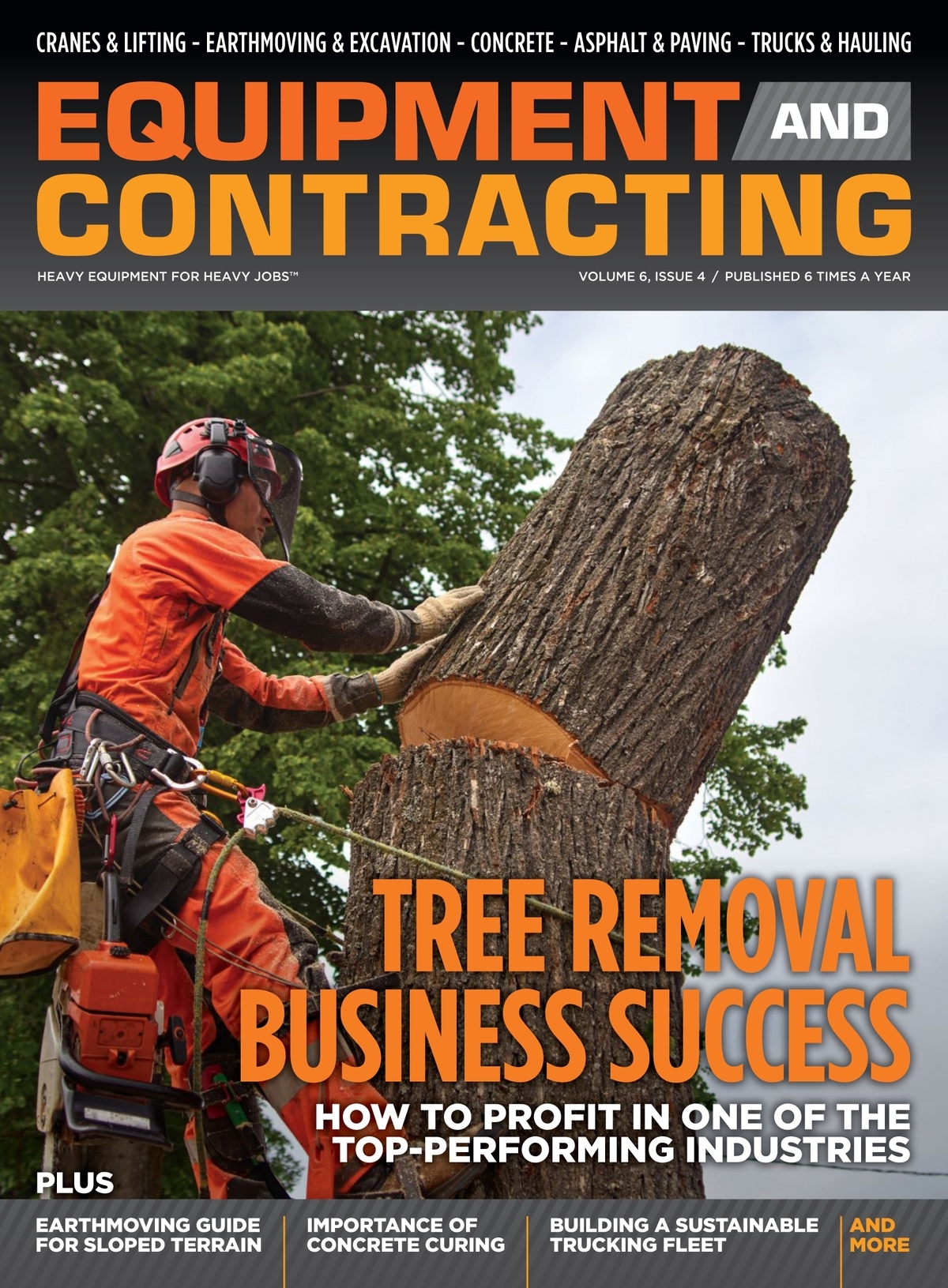 Out on the Limb Tree Service, LLC has built up a large contingent of trucks and equipment over its 21 years in business, but the acquisition of a Black Splitter S2 800 Cone Splitter from Ransome Attachments in 2018 has brought a new level of versatility to this tree service operation. The company provides a range of services including tree removal, pruning, chipping, and stump grinding to residential, commercial, and government customers within a 35-mile radius of its Seymour, Connecticut headquarters.
Out on the Limb Tree Service, LLC has built up a large contingent of trucks and equipment over its 21 years in business, but the acquisition of a Black Splitter S2 800 Cone Splitter from Ransome Attachments in 2018 has brought a new level of versatility to this tree service operation. The company provides a range of services including tree removal, pruning, chipping, and stump grinding to residential, commercial, and government customers within a 35-mile radius of its Seymour, Connecticut headquarters.
Owner Adam Lieder recalls the search: “We have land clearing guys with shears, but we didn’t have an excavator large enough to bust up big wood,” he says. “We looked at other avenues that would allow us to process some of our bigger wood into more manageable pieces.”
The landscaper found the Black Splitter through an internet search. After making a positive connection with owner Eric Ransome, the company was convinced that the S2 800 was the right fit for its machine and operation.
Out on the Limb’s previous process needed improvement, according to Lieder. “We were just trying to just get rid of nasty bones wherever we could, he says with a laugh. “We were basically cutting it down to firewood size and putting it on the log splitter.”
The S2 800 is designed to fit all sizes of compact excavators, but Out on the Limb has it mounted on a Bobcat E45 Mini Excavator. A quick coupler allows for a quick switch between machines as needed. The Black Splitter can usually be found processing wood in the company’s yard, or in tow on a trailer to a local work site. Most onsite removals and cuts are done with a rotating grapple, but Out on the Limb often uses the Black Splitter to breakdown larger, gnarlier trees and stumps.
Seymour and surrounding towns are heavily wooded with an abundance of mature trees so Out on the Limb often takes down and disposes of large, off-size timber. Logs under eight feet cannot be sold, and yet they’re also too large to dispose of easily. “With the Black Splitter, we can take these large, knotty sections, bust them down into a manageable size, chip it, and sell the chips,” he says. “We can also break down six-footers into four sections and drop it off at someone’s house for a pack of cheap firewood.”
The S2 800 is in its glory back at the yard when processing and feeding wood to a Morbark 20/36 Whole Tree Drum Chipper. The crew usually sorts garbage wood and logs into separate piles and begins breaking them down when the mound gets too large. “When we’re in processing mode, we throw the Black Splitter on and hammer down,” says Lieder.
The increased productivity is noticeable but the greater value for Out on the Limb is in being able to turn once unusable materials into a new revenue stream. “We’re taking byproducts that we couldn’t do anything with and turning them into a usable product,” Lieder says.
Out on the Limb re-grinds wood chips and dyes them to make mulch. The finished product is sold to commercial customers and given to homeowners for free because there is no demand for the chips with the abundance of trees in this part of Connecticut. “These chips are usable product to somebody somewhere, and they’re easy to get rid of because homeowners like them,” he says. “Now I can keep Joe Smith happy because he gets a free load of wood chips and I don’t have to look at this big, gnarly piece of pine that I have no use for.”
Lieder says his crews deal with virtually every type of northeastern tree including Pine, Oak, Ash, Hickory, Maple, Spruce, and Hemlock. Out on the Limb has not encountered any wood that the Black Splitter could not handle, but they find Hickory to be the most challenging because of its stringiness. In these cases, the excavator operator simply engages the spinning motion of the S2 800 and sweeps between the log sections to break the strands.
Out on the Limb’s use of the Black Splitter is sporadic. “We don’t run the S2 800 every day, but a few weeks ago we ran it for a week straight,” Lieder says. “I couldn’t even tell you how many hundreds of yards of wood chips we produced.”
The S2 800 also helps with a trend among homeowners that’s resulting in increased processing for Out on the Limb. Homeowners in decades past often asked for firewood to be left on site, as opposed to today’s homeowners that want everything hauled away.
This means less time in the field breaking down wood and cleaning up sawdust and more time hauling and processing it. “It’s cheaper for us to just haul it offsite and try to figure out something later than it is to sit there and cut up firewood and sawdust in someone’s yard,” Lieder says. “It’s a win-win because I don’t have to clean up sawdust in the yard and we’re making a bad byproduct into good byproduct, which is obviously the number one goal.”
Lieder sees the possibility of buying a larger excavator and Black Splitter model in the future. “If we keep on growing, we’ll probably add another bigger Black Splitter and keep on doing what we’re doing,” he says. “It seems to be working.











































